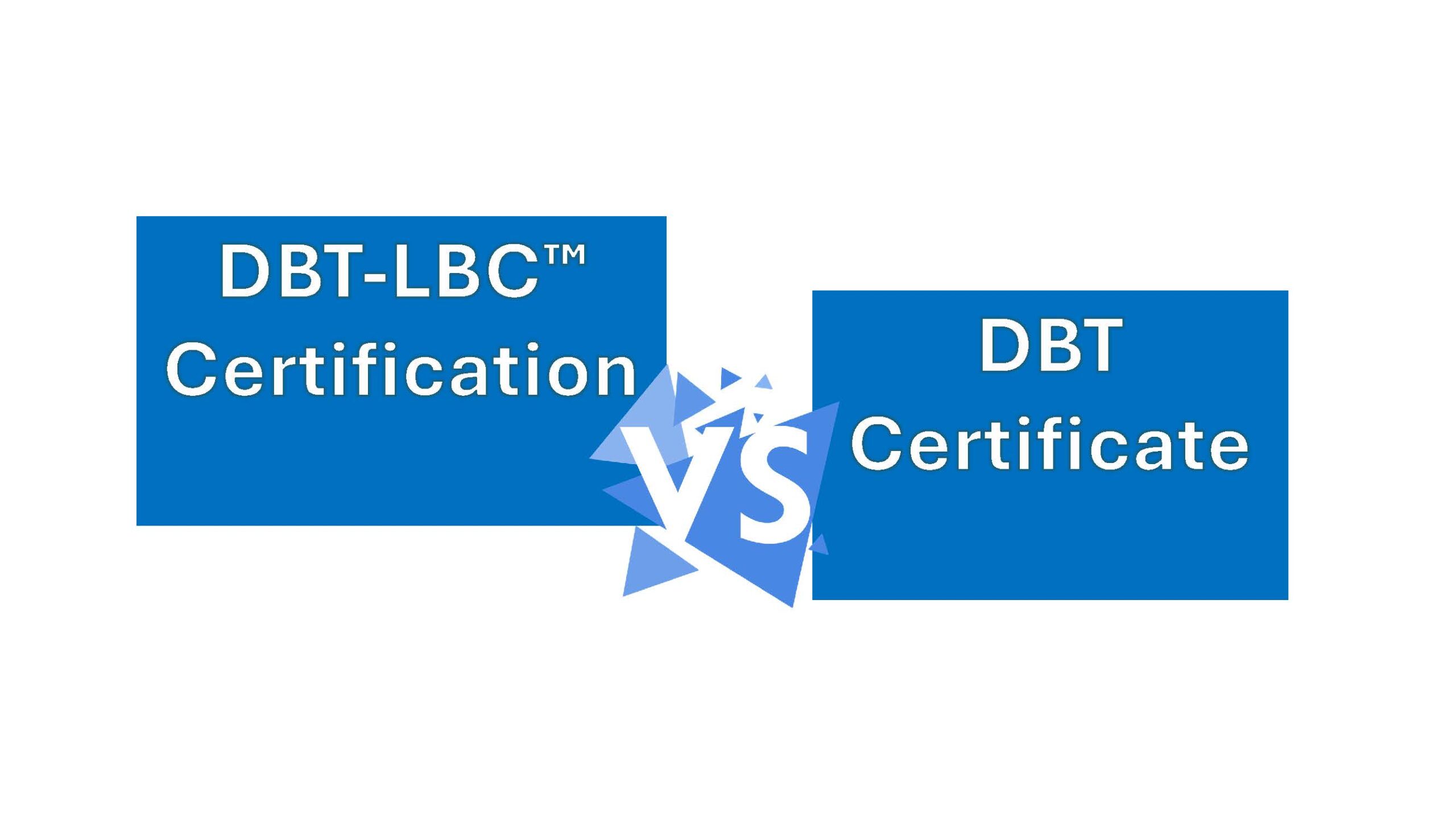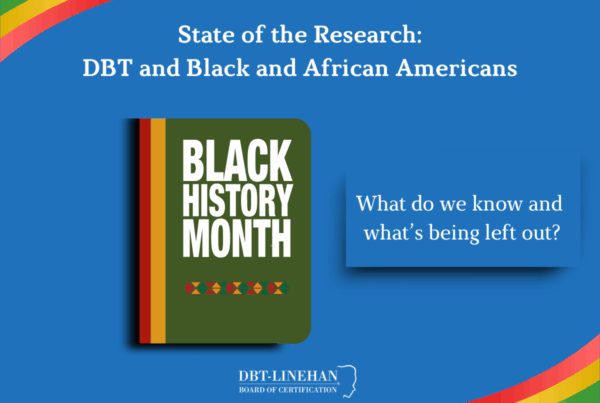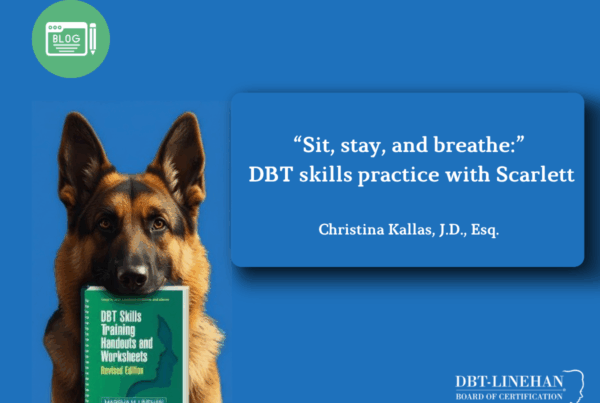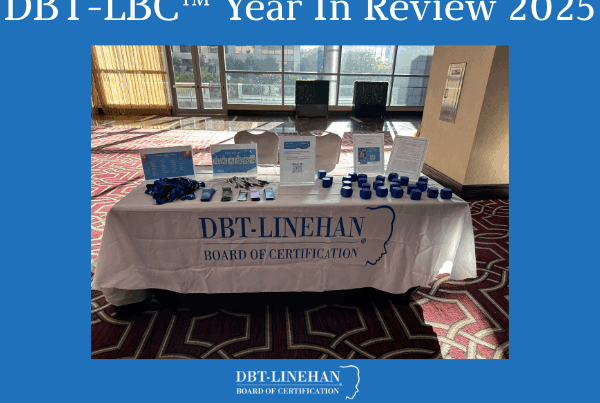Welcome to 2025! We wanted to start this year by highlighting the differences between earning a certificate in DBT versus achieving DBT-LBC™ Clinician Certification. While both processes involve self-study of the protocols and principles of DBT, there are distinct differences in how certifying bodies evaluate that learning. We wanted to take time to speak to those differences.
Both DBT-LBC™ Certification and programs that offer a certificate require several training hours in DBT, as well as a clinician attesting that they’ve read DBT textbooks and manuals. Both processes also require an applicant to confirm they’ve conducted sessions using DBT, as well as use measures to inform treatment goals in therapy. In an attestation – based program, clinicians submit documentation of completing these goals. After a review and commitment to the certifying programs ethical code, the applicant is awarded an attestation-based certification in DBT.
The differences with DBT-LBC™ Clinician Certification begin here. After submitting education and training experiences, applicants are asked to document a minimum of one year’s experience providing a course of Stage One DBT treatment to three clients. A written endorsement from the applicant’s Consultation Team leader is also required, as are additional documented hours in an active Mindfulness practice. Once all documentation has been reviewed, an applicant is granted permission to take a DBT written knowledge exam. Evaluated by independent psychometricians, the exam’s content questions cover the treatment structure, problem assessment and solving strategies, validation, dialectics, and treatment protocols. To protect the integrity of testing protocols, the exam is administered at a Pearson Vue testing center locally located to each applicant.
The process of DBT-LBC™ evaluation continues, with an applicant being asked to demonstrate real life application of DBT theory and practice by submitting recordings of actual DBT therapy sessions with a current client. Trained adherence coders evaluate each session’s content against objective standards of fidelity to the treatment model. Once a clinician’s work product has been scored as adherent, and a final review of the entire application process has been completed, an applicant is awarded DBT-LBC™ Clinician Certification.
DBT–LBC™ also works to provide certification for comprehensive DBT programs. It is required that the team lead of an applying program is a DBT-LBC™ Certified Clinician. That team then submits an application that offers a comprehensive review of a program’s administrative policies, procedures, and clinical standards of practice. Once a comprehensive program is found to provide the administrative and clinical structure for adherent treatment delivery, an onsite visit is scheduled. At that time, independent program reviewers conduct interviews with a team’s individual therapists, group facilitators, and clients currently enrolled in the program. Overall, the goal is to ensure that both the formal structure and flexible practice of comprehensive DBT is adequately in place. Once all steps are completed, and found to meet standards of adherence, a comprehensive DBT program is awarded DBT-LBC™ Program Certification.
Comprehensive DBT works to teach, generalize, and master acceptance and change principles within a client’s life worth living. DBT-LBC™’s certification standards mirror this process across clinical knowledge and practice contexts. Our goal is to provide several points of objective evaluation for clinicians and programs seeking DBT LBC™ Certification. We also commit to continually evaluating our certification requirements and standards with the goal of helping clients seeking comprehensive DBT to find the treatment as it was designed to be delivered. We look forward to working alongside our community of therapists in 2025!
Are you interested in learning more about the work of DBT-LBC? Follow us on Facebook, Instagram, LinkedIn and Youtube! Please reach out to [email protected] for more information on how to help. Please also consider a donation to DBT-LBC, a gift in any amount helps link clients in need of DBT treatment with the care they deserve. You can make a donation here.
A big Thank You to our editors who make this Blog happen:
Co-Editor – Amy Kalasunas, LPCC-S, CCMHC
Co-Editor – Emily Vanderpool, LPC-MHSP, LBA, BCBA
Co-Editor – Tali Wigod, Psy.D.
Co-Editor – Casey Anderson, LCPC, RPT
Co-Editor – Liz LoTempio, Psy.D.





